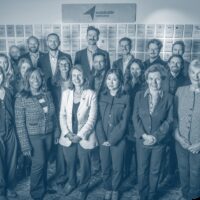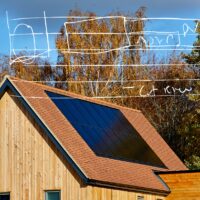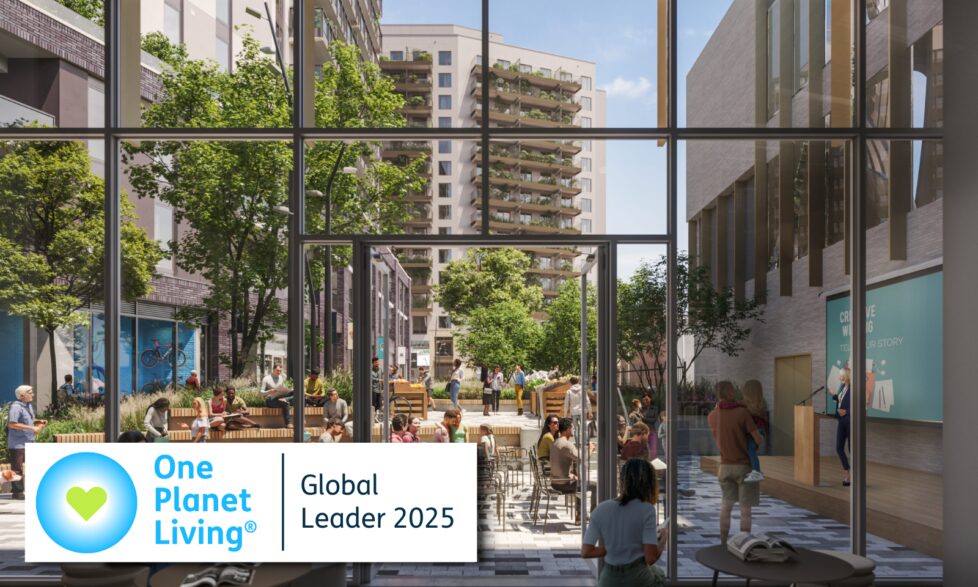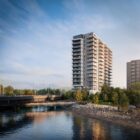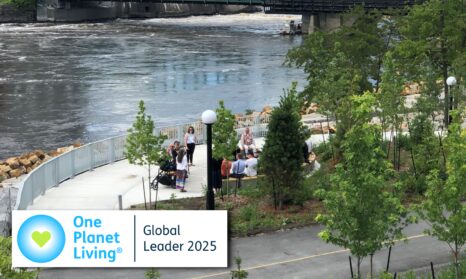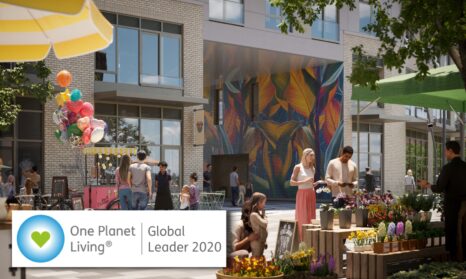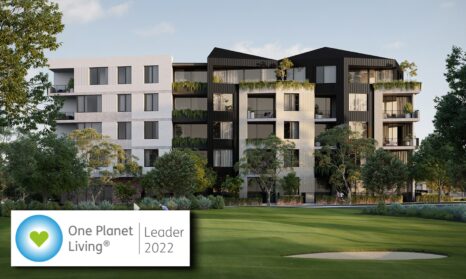Windmill Group of Companies
The Windmill Group of Companies is dedicated to transforming conventional development practices through its use of One Planet Living.
By becoming a Global Leader in 2024, it has achieved a landmark success: the first time a North American-based company has received a leadership distinction under Bioregional's globally used framework.
Windmill created Canada’s first One Planet Living masterplan at Zibi in Ottawa, and in 2021, it established the $66M One Planet Living Real Estate Fund, in partnership with Epic Investments. The Fund currently has 10 active projects across the Greater Toronto Area and downtown Ottawa. Four of the projects will take an innovative approach to using prefabricated Cross Laminated Timber, which delivers lower embodied carbon and allows for more rapid construction delivery.

One Planet Living is deeply embedded in every aspect of the Windmill Group of Companies: in its corporate strategy, its governance structures, its staff culture, and in the formulation and specification of every development project in the One Planet Living Fund. The Group’s advisory arm, Urban Equation, makes all the technical realities of One Planet Living come alive, innovating and improving with new ideas on every project.
One Planet Living is expertly communicated in all Windmill communications material, and this is true for the 2023 Sustainability Strategy. The governance structures and corporate culture at Windmill are inspiring and One Planet Living is beautifully integrated into all group operations.
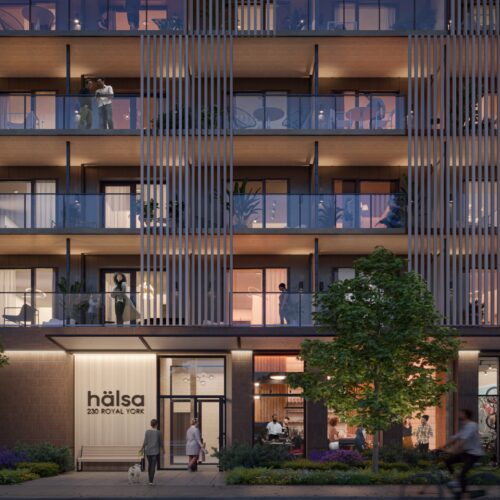
Highlights from the 2024 annual review:

Health and happiness Windmill cares about the health and happiness of its staff. It offers a whole suite of initiatives from flexible hours in the summertime, mentorship for every employee, step count contests and even a company subscription to a mindfulness program. This year, it achieved a 100% response rate and a high Gallup employee satisfaction score of 4.25. Windmill also offers a significant annual financial health and wellness benefit to spend on fitness classes or healthcare.

Culture and community There is an impressive programme of internal knowledge sharing sessions and learning sessions open to the wider community. There are plans for a programme of volunteer days with local charities for Windmill staff. On new build developments, all projects are on track to implement Community Benefits Agreements with local communities. All projects are also on track to have an eco-concierge program implemented once they are occupied.

Zero carbon energy Compared with 2022, its baseline year, Windmill’s carbon footprint decreased by over 7,000 tonnes, from 40,147tCO2e annually to 33,022. It achieved this by eliminating the last elements of fossil fuel combustion from its development projects and by partnering with Intelligent City to pioneer the use of mass timber.

Materials and products The total embodied carbon intensity of Windmill’s project portfolio is reported at 420 kgCO2/m2 - better than the original target of 500 kgCO2/m2 in the action plan. The team partnered with Canadian provider Intelligent City to pioneer the use of mass timber in both the structure and envelope for three mid-rise blocks in Toronto, achieving embodied carbon intensities as low as 220kgCO2/m2.
Our framework turns daunting sustainability challenges into achievable, collaborative steps
Find out more
"If you want to feel better about the world, read the Windmill Group annual review. Windmill continues to lead the way in North America, with beautifully thought-out new buildings in the right place and inspiring approaches to every aspect of One Planet Living."
Sustainability Strategy
Leadership review
Annual reviews

